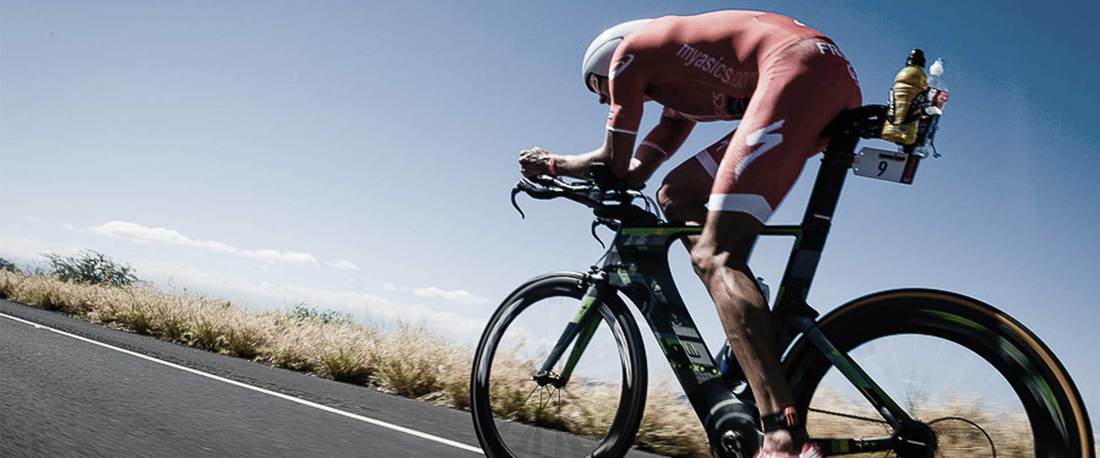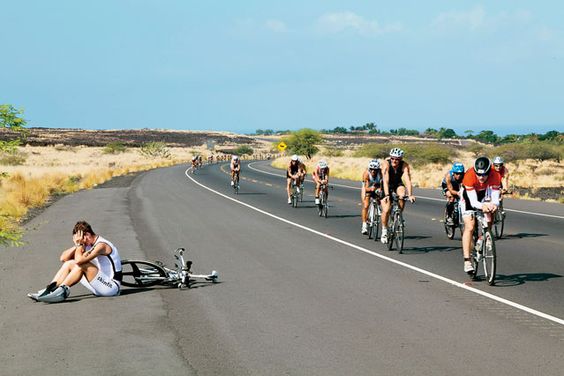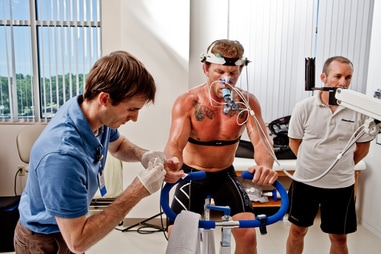|
Well if you’re reading this then you’ve done the impossible; you survived 2016. Despite George RR Martin pulling the strings behind the scenes of 2016 like the Wizard of Oz, the beginning months of January means Triathlon training starts! There are many things that we should take a look at the beginning of this season to make sure you have a good season and today we’re talking about Testosterone. Now Testosterone’s role in athletics is primarily thought of as being associated primarily with weight lifting and muscle gain but this is far from the truth. Testosterone is heavily involved with endurance sports too, especially with male triathletes! Symptoms Having worked with many triathletes (and being one myself) this often gets overlooked in male endurance athletes. There’s a good reason for this; the symptoms are very vague. The most common symptoms for low testosterone are fatigue and a lowered libido, often attributed to the high physical demands and training schedules with triathlons. Putting 20+ hours a week into a training program with early morning swims, bike rides and runs is often seen as the root cause of fatigue, especially when someone is working or going to school full time and if there are children involved. This also applies to the decreased libido, I mean it’s hard to feel sexy or get in the mood when you’ve spent a 6-hour chunk of the day doing a brick workout but this can be a good indicator of low testosterone! What does low testosterone do? Well aside from the simplest answer of fatigue and a low sex drive, maintaining muscle mass and bone density becomes a major issue! Which is why many triathletes start to get a lot of injuries close to the race day because they’re more prone to shin splints and stress fractures! Causes One of the contributing causes of low testosterone could be that triathletes tend to be a bit older, which sees a gradual decline in testosterone levels with age. Some medications that are commonly used as men get older have side effects that can decrease testosterone. These drugs could be statins for high blood cholesterol, antihistamines for allergies and some painkillers. Sound familiar? An older male athlete with elevated blood cholesterol and some allergies during the spring outdoor riding months that feels some pain after an intense training session? Bingo, we have an at risk group. Another overlooked cause of low testosterone is intense training without adequate nutritional interventions for refueling, rehydrating and rebuilding. The list just keeps going on because not getting enough sleep could reduce your testosterone levels as well as weight/ body fat. From a competitive advantage, yes we can get you to move faster through all 70.3 or 140.3 miles of the race if you’re lighter but if your body fat is too low your hormone balance is thrown off, especially testosterone. You might also notice that if the body fat drops too low those symptoms of depression and mental health start to kick in as well as irritability! This might be sounding familiar to some of you; yes this is synonymous with Relative energy deficiency in sport or RED-S for men and the female athlete triad for women, which has been discussed in previous blog posts here at ESN.  Prevention and Treatment One of the best things to do at the beginning of the training season is to go see your doctor and get a baseline level of testosterone measured. This should be considered especially if you’re an older athlete, already feeling fatigue and decreased energy levels, previous stress fractures or bone density issues or if you’re very lean. There are many options that your doctor can talk to you about to address the low testosterone but if they recommend supplementation or medication then make sure you get a medical note as taking those meds could disqualify you from a race! Also remember that low testosterone levels can take months to develop and months to correct! If you are dealing with this then there are a few things that you can do at home. The first is to look at reducing your training load until the levels normalize. This means training at a lower intensity for shorter periods of time and getting more quality sleep. There are also a ton of nutritional things that need to be done; an increase in calories, proper hydration and looking at a few supplements may be a good place to start but my best advice here is go see a Sports Dietitian that specializes in Endurance sports. I could sit here and write the rest of this post on which vitamins and minerals you’ll likely need but if you’re not fully evaluated then it can make matters worse, which is why I recommend seeing a Sports Dietitian so they can give you a completely holistic assessment to help you with your issues and get you training again. But once you’re testosterone levels come back to normal then it’s a good idea to keep working with that Sports Dietitian to make sure you are meeting your nutritional requirements to fuel you to ensure you have the best race season ever! I can’t stress how important this is because many triathletes will have no issue dropping over $5000 on a new bike that shaves off 1-2lbs and is a bit more aerodynamic but not even consider how their current nutrition is impacting the weight on the bike as well as how aerodynamic your own body is. Seriously, the cost of some carbon fibre disk wheels is over 2 times what you could spend on a good Sports Dietitian in one season. You’re also in luck because ESN has a January New Years special with our pricing! Check out our store to find out more! So do yourself a favour this triathlon season and go get your testosterone levels checked and consider working with a sports dietitian to not only make sure you have the best race season of your life but also for your long term health and wellness! For my fellow triathletes, I’ll be seeing you in the Muskoka Half Ironman this year! So if you see me make sure you say hi and maybe get a little bit of last minute advice on nutrition before the race! Ben Sit, RD, Sports Dietitian President of Evolved Sport and Nutrition Complete Lifestyle Management
2 Comments
16/10/2018 04:59:22 pm
Nice post. I learn something more challenging on different blogs every day. It will always be stimulating to read content from other writers and practice a little something from their store. I’d prefer to use some with the content on my blog whether you don’t mind. Naturally I’ll give you a link on your web blog. Thanks for sharing.
Reply
Leave a Reply. |
Categories
All
Archives
November 2021
|
- Home/ News
- About
- Services/ Store
- Media
-
Learning Center
- ESN Athletic and Healthy Lifestyle Learning Center >
-
Professional Learning Center
>
-
The ESN Sports Nutrition Certificate
>
- ESN Learning Center - Sports Nutrition Certificate Level 1 >
- ESN Learning Center Sports Nutrition Certificate Level 2 >
-
ESN Learning Center - Sports Nutrition Certificate Level 3
>
- Module 1 - Periodization for the Athlete
- Module 2 - Nutrition Strategies to Optimize Recovery
- Module 3 - Sports Nutrition for Children and Young Athletes
- Module 4 - Sports Nutrition for the Aging Athlete
- Module 5 - Nutritional Strategies for Injury Prevention and Concussions
- Module 6 - Nutritional Strategies for the Travelling Athlete
- Module 7 - Tournament Nutrition Strategies
-
The ESN Sports Nutrition Certificate
>
- Contact
Proudly powered by Weebly




 RSS Feed
RSS Feed